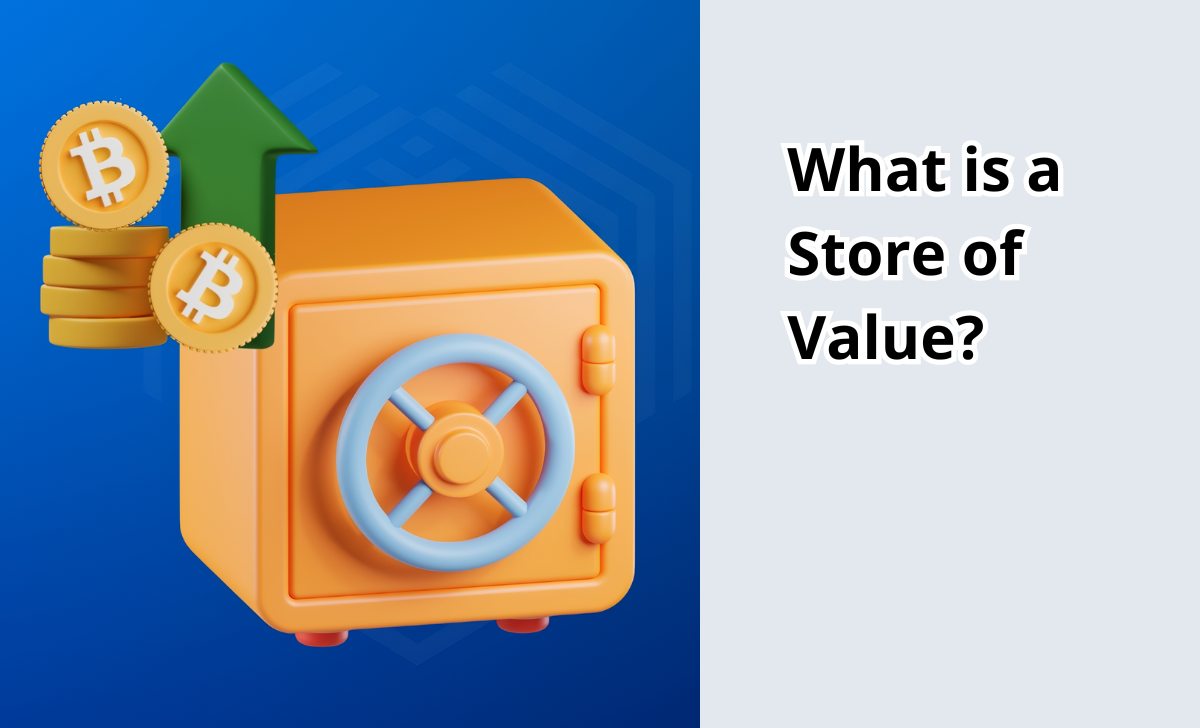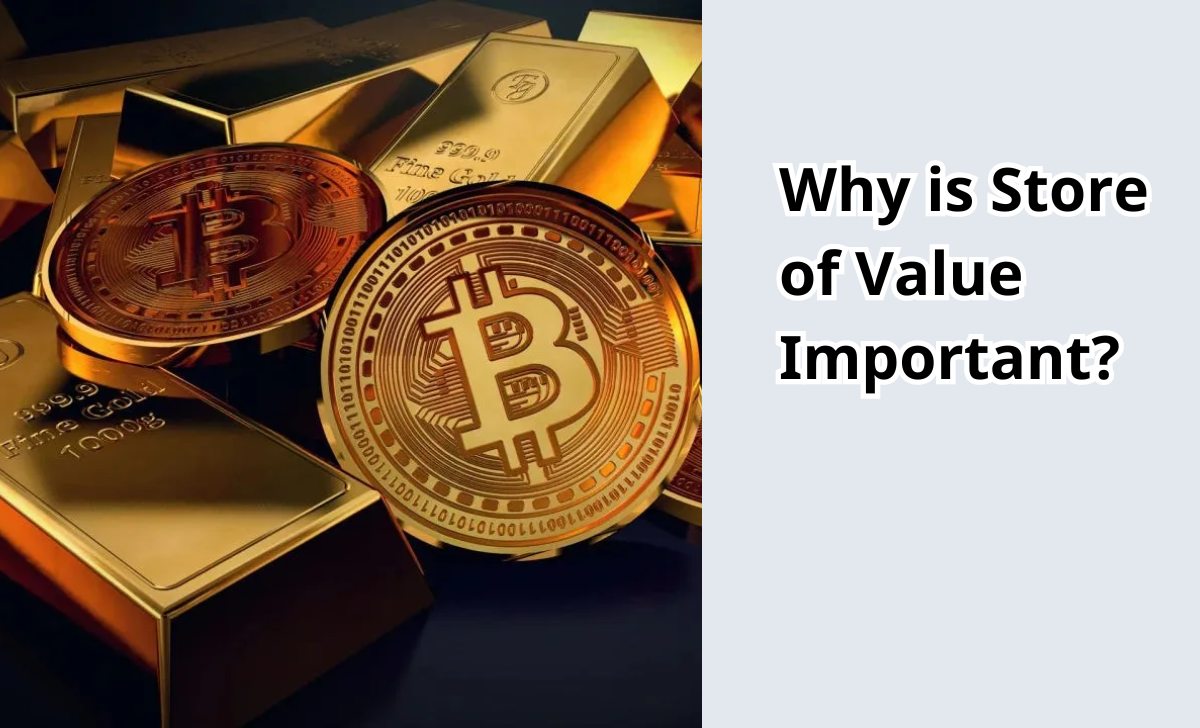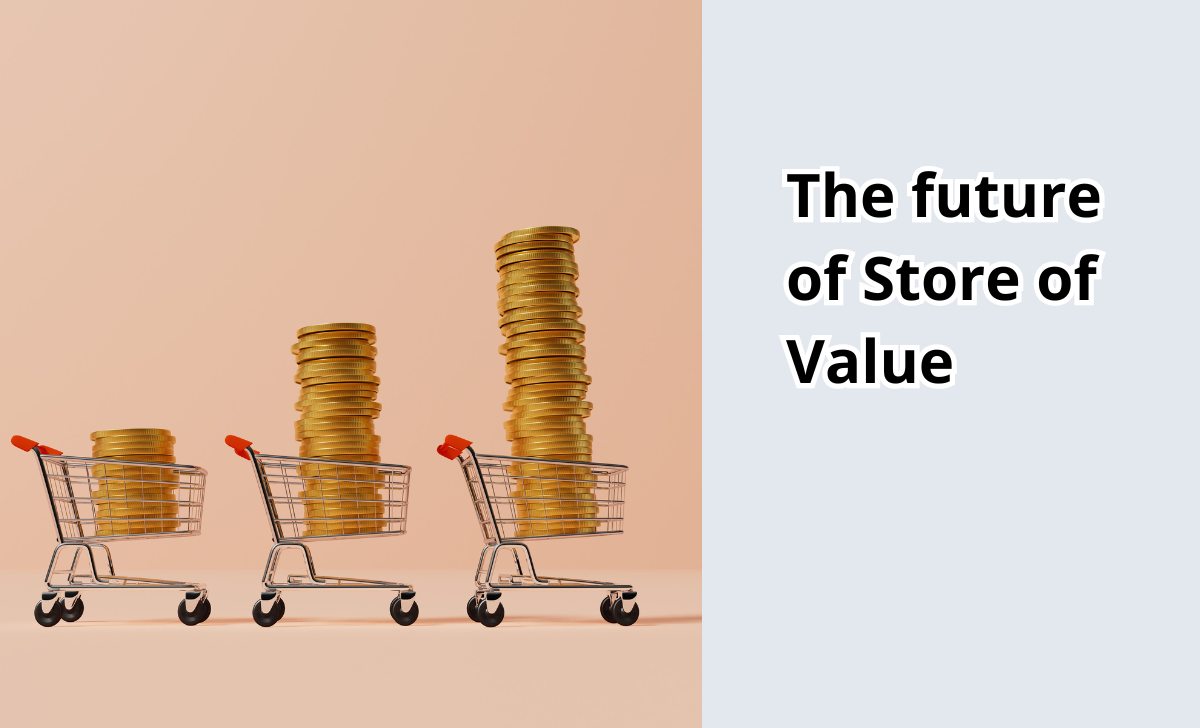Store of Value is an important concept in finance, referring to the ability of an asset to maintain its value over time without significant depreciation. Various Stores of Value provide investors with options to protect their assets from inflation and market fluctuations.
In this article, AZCoin will help you explore the definition, specific examples, and importance of Stores of Value in the context of modern finance.
What is a Store of Value?

Store of Value is an asset that can retain its value over time without significant loss. This means that a Store of Value can be held and later converted back into money or other goods without losing its purchasing power. An ideal Store of Value must meet several basic criteria, including stability in value, liquidity, and protection against inflation.
Examples of Stores of Value
Gold
Gold is one of the oldest and most popular Stores of Value. With its stability and ability to retain value over long periods, gold has been used as a medium of exchange and store of value for centuries. Gold is also considered a hedge against inflation and economic instability.
Fiat Currency
Fiat currencies like USD, EUR, and JPY are also seen as Stores of Value but with certain limitations. While fiat currencies have the advantage of liquidity and widespread acceptance, they can lose value due to inflation and unstable monetary policies.
Cryptocurrencies
Bitcoin and other cryptocurrencies have emerged as new options for Stores of Value. With a limited supply and not controlled by any government, cryptocurrencies provide a means of storing value without the effects of inflation and traditional monetary policies.
For safe cryptocurrency trading, refer to AZcoin’s verified and validated list of the best crypto exchanges 2024.
Real Estate
Real estate, such as land and properties, is also considered a Store of Value. With the potential to increase in value over time and generate income through rental, real estate is an attractive option for those looking to protect assets in the long term.
Why is Store of Value Important?

A Store of Value (SOV) is important because it helps protect assets from depreciation due to inflation and economic fluctuations. When inflation rises, the purchasing power of currency can decline sharply, but a stable SOV like gold, real estate, or cryptocurrency can maintain the value of assets over time.
This is particularly important for individuals and organizations in maintaining long-term financial stability and ensuring future spending capability.
Additionally, SOV provides a means to diversify investment portfolios, mitigate risk, and increase profitability, while also instilling confidence in investors and consumers regarding asset storage and management.
Store of Value in the Digital Age
The development of blockchain technology and cryptocurrencies has revolutionized the concept of Store of Value. Cryptocurrencies like Bitcoin have become decentralized Stores of Value, not dependent on any central authority.
This offers significant advantages in protecting assets from government intervention and inflation. Moreover, smart contracts and decentralized applications (DApps) are also opening new opportunities for storing and managing asset value in the digital era.
In addition to exploring Stores of Value, you can also refer to similar topics such as What is Digital Gold, Who is Michael Saylor,…
Challenges to Traditional Stores of Value

Here are some challenges facing traditional Stores of Value (SOV):
- Inflation and Monetary Policy: Traditional Stores of Value like fiat currency often depreciate due to inflation, especially when governments increase the money supply to stimulate the economy. Prolonged low interest rates also reduce the profitability of traditional savings and investments, making them less attractive.
- Economic and Political Volatility: Financial crises and global economic instability can negatively impact the value of traditional Stores of Value. Additionally, political factors such as conflicts and social unrest can undermine confidence in currencies and national assets, making these SOVs less stable.
- Technological Advances: The advent of blockchain technology and cryptocurrencies has created new, more attractive SOV options compared to traditional assets. New technologies offer greater transparency and security, rendering traditional SOVs outdated and less effective in protecting asset value.
- Changing Consumer Behavior: Younger generations tend to invest in digital assets like cryptocurrencies rather than traditional SOVs like gold or real estate. This shift reflects a preference for flexible, quick, and potentially more profitable investment solutions, reducing the appeal of traditional SOVs.
- Storage and Protection Costs: Storing and protecting physical assets like gold and real estate can incur high costs, from storage fees to insurance. These assets also face physical risks such as theft or damage, diminishing their attractiveness as a Store of Value.
- Liquidity and Accessibility: Some traditional stores of value, such as real estate, often lack liquidity, making it difficult to quickly convert them into cash when needed. Transactions involving physical assets can be complex, time-consuming, and costly, causing inconvenience for owners.
- Regulatory Risks: Changes in laws and regulations can affect the value and usability of traditional SOVs. New regulations may restrict the buying, selling, and exchange of these assets, creating barriers for investors and reducing their long-term value.
The future of Store of Value

The future of Store of Value (SOV) is evolving towards diversification and modernization with the rise of technology and new investment trends. Cryptocurrencies like Bitcoin are gradually being recognized as potential SOVs due to their decentralization and inflation resistance.
The advancement of blockchain technology also opens opportunities for other digital assets to become SOVs, providing transparency and high security. Meanwhile, traditional SOVs like gold and real estate continue to play an important role due to their long-standing stability.
However, they must adapt to the high liquidity needs and flexible investment trends of the new generation. The combination of traditional and modern SOVs may create a more sustainable financial environment, meeting the needs of investors in a changing economic landscape.
Conclusion
In summary, Stores of Value play a crucial role in protecting assets and maintaining purchasing power over time. AZcoin believes that understanding different SOVs and choosing the right one for personal financial goals will help protect assets and increase profitability in the future!

I am Louis Dang, living in Ottawa, Canada. I am currently working as a trader for AZCoin company, with 7 years of experience in the cryptocurrency market, I hope to bring you useful information and knowledge about virtual currency investment.











